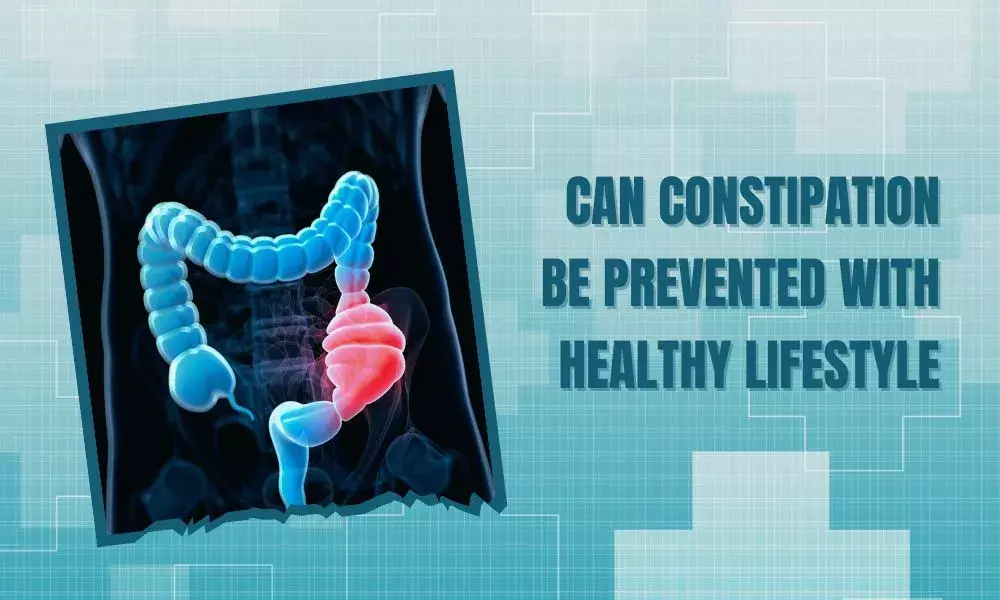An uncomfortable condition that causes infrequent and painful bowel movements, often called constipation, can cause many health issues.
Table of Contents:
-
Signs of Constipation
-
Causes of Constipation
-
Health problems that constipation can cause
-
When should you consult a doctor for constipation?
-
Tips for treating constipation
Dr. Sonal Mhatre, BHMS, with 17 years of Clinical experience, shares useful information about causes, symptoms, and tips for treating constipation.
Signs of Constipation
Constipation may not occur suddenly; it builds up gradually, and the common symptoms of this condition are:
-
Dry, hard, or lumpy stools
-
Experiencing difficult and painful bowel movements
-
Feeling bloated often
-
Bowel movements fewer than three times a week
-
Feeling sluggish or uncomfortable
-
Abdominal pain
Causes of Constipation
Our diet is one of the major causes of constipation. In addition to diet, other factors causing constipation are:
-
Insufficient liquid intake, especially water.
-
Lack of fiber or roughage in the diet.
-
Ignoring the urge to have a bowel movement.
-
Lack of exercise or basic physical activity.
-
Changes in habits or lifestyle, such as travel, pregnancy, and old age
-
Irritable bowel syndrome.
-
Problems with intestinal function.
-
Medications.
-
Overuse of laxatives.
Health problems that constipation can cause
Constipation may lead to certain health complications. Some complications may include:
-
Hemorrhoids refer to inflamed or swollen veins in the rectum.
-
Injuries in the lining of the anus caused by hardened stool, also called anal fissures.
-
Infection in the pouches (diverticula) sometimes forms off the colon wall from stool that becomes trapped and infected.
-
Fecal impaction means too much poop in the rectum and anus.
-
Damage to pelvic floor muscles caused due to straining.
When should you consult a doctor for constipation?
Frequent bowel issues are not a healthy indication; therefore, one must consult a doctor under the following circumstances:
-
Blood in poop.
-
Unintentional weight loss.
-
Severe pain with bowel movements.
-
When constipation has lasted more than three weeks.
Tips for treating constipation
Since bowel-related issues directly impact our health, treating constipation at the earliest is essential. Treatment for chronic constipation generally includes dietary and lifestyle changes that can help smooth stool movement through the intestines. Some recommendations for immediate constipation relief at home include:
-
Drinking ample amounts of water during the day aids in reducing constipation. One must avoid caffeine-containing drinks and alcohol, which can cause dehydration.
-
Avoid processed meats, fried foods, and refined carbs like white bread and pasta.
-
Keep a food diary and figure out foods that constipate you.
-
Increasing fiber intake is vital while treating constipation. Adding fiber to our diet makes it easier for the stool to pass through the intestines. One must consume more fresh fruits and vegetables daily. Adding prunes, bran cereal, and other high-fiber fruits like oranges, pineapples, berries, mangoes, and papaya can be helpful.
-
Exercising or doing physical activity increases muscle activity in our intestines, hence helping in constipation.
-
One does not sit in the toilet for more than 10 minutes. Therefore, using any device in the wash room is a strict no.
-
Avoid holding the urge to use the bathroom. Eventually, it will block the signal from your colon to your brain to relax and let the poop out.
-
In case you experience constipation after taking certain medications, consult your doctor.
Constipation is a painful condition, but it is temporary if treated timely. The prolonged existence of bowel irritation may lead to serious conditions. Therefore, one must be alarmed about constipation and treat it at the earliest; if home remedies are not helping, consulting a doctor at the earliest is a must.





